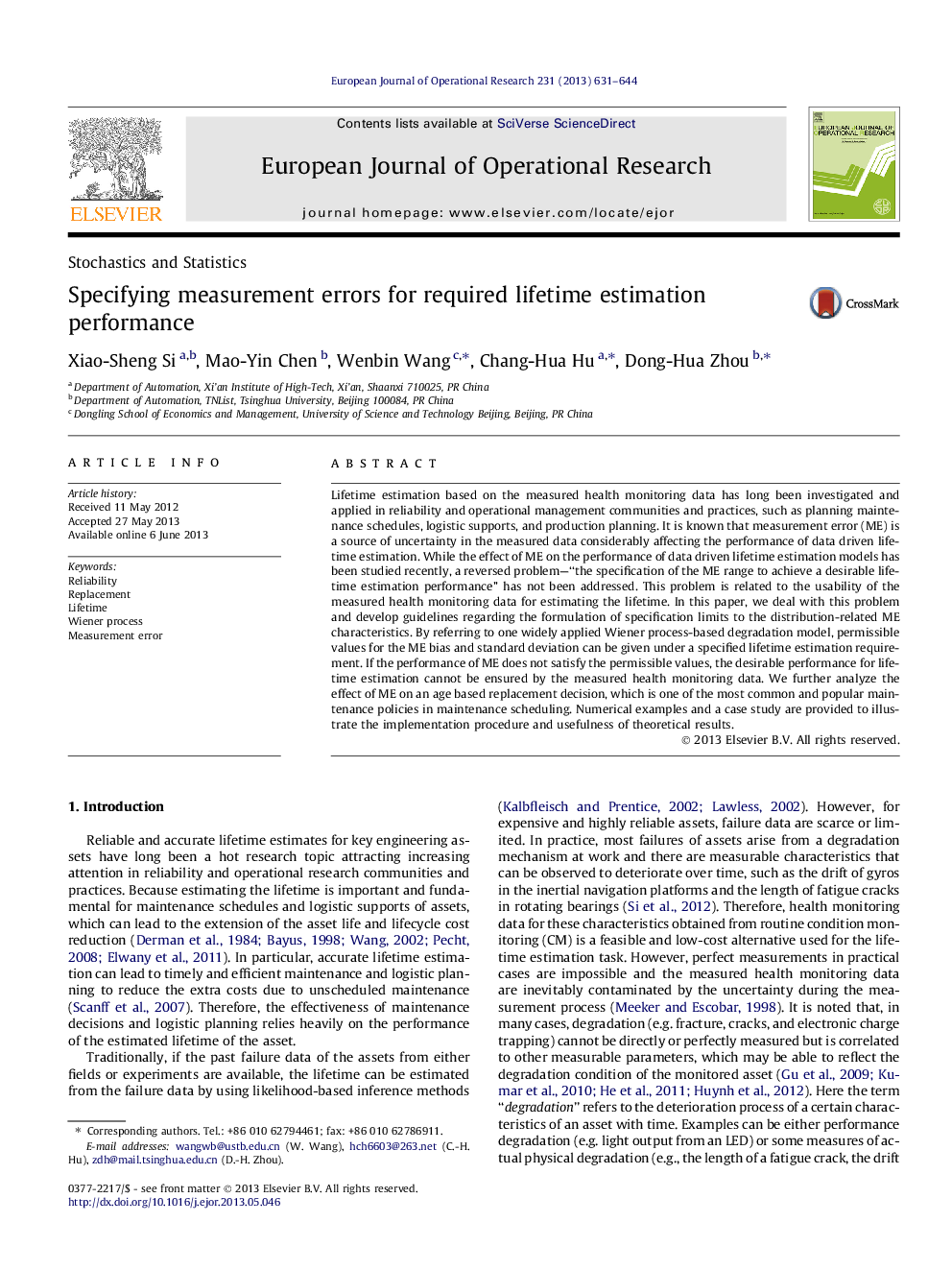| Article ID | Journal | Published Year | Pages | File Type |
|---|---|---|---|---|
| 6897762 | European Journal of Operational Research | 2013 | 14 Pages |
Abstract
Lifetime estimation based on the measured health monitoring data has long been investigated and applied in reliability and operational management communities and practices, such as planning maintenance schedules, logistic supports, and production planning. It is known that measurement error (ME) is a source of uncertainty in the measured data considerably affecting the performance of data driven lifetime estimation. While the effect of ME on the performance of data driven lifetime estimation models has been studied recently, a reversed problem-“the specification of the ME range to achieve a desirable lifetime estimation performance” has not been addressed. This problem is related to the usability of the measured health monitoring data for estimating the lifetime. In this paper, we deal with this problem and develop guidelines regarding the formulation of specification limits to the distribution-related ME characteristics. By referring to one widely applied Wiener process-based degradation model, permissible values for the ME bias and standard deviation can be given under a specified lifetime estimation requirement. If the performance of ME does not satisfy the permissible values, the desirable performance for lifetime estimation cannot be ensured by the measured health monitoring data. We further analyze the effect of ME on an age based replacement decision, which is one of the most common and popular maintenance policies in maintenance scheduling. Numerical examples and a case study are provided to illustrate the implementation procedure and usefulness of theoretical results.
Related Topics
Physical Sciences and Engineering
Computer Science
Computer Science (General)
Authors
Xiao-Sheng Si, Mao-Yin Chen, Wenbin Wang, Chang-Hua Hu, Dong-Hua Zhou,
